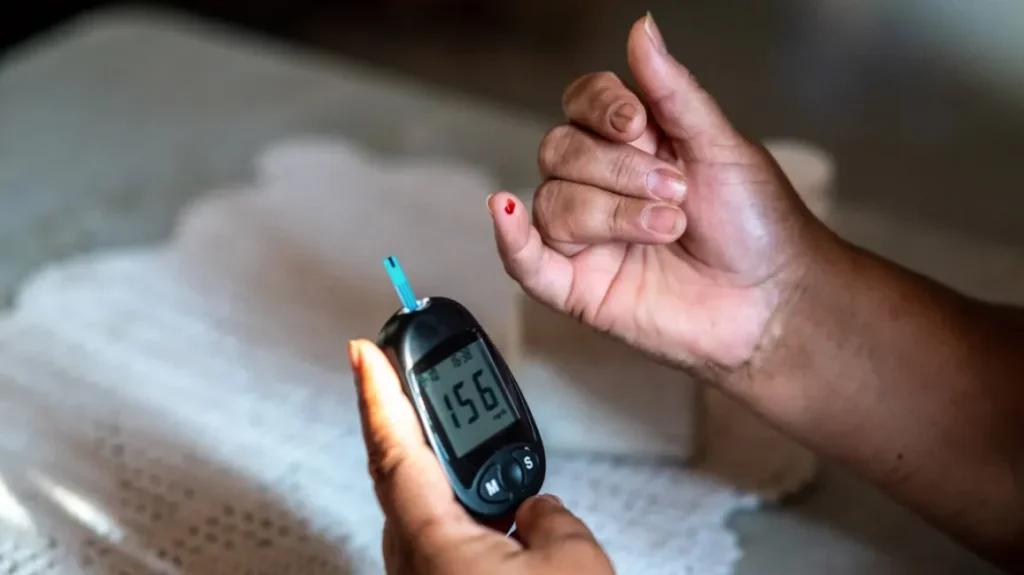Intermittent fasting has gained significant attention for its potential health benefits, particularly for people with diabetes. If you’re wondering about the benefits of intermittent fasting for diabetics, this article provides a comprehensive, research-backed overview to help you understand how this eating pattern might improve blood sugar control, promote weight loss, enhance insulin sensitivity, and contribute to overall metabolic health.
Whether you have type 1 or type 2 diabetes, or are at risk, learning about intermittent fasting’s effects on glucose regulation and diabetes management can be empowering. We’ll also offer actionable advice and practical examples to guide safe and effective fasting practices tailored for diabetics.
What Is Intermittent Fasting?
Intermittent fasting (IF) refers to eating patterns that cycle between periods of fasting (no or minimal calorie intake) and eating. Unlike traditional diets, IF focuses on when you eat rather than what you eat. Common IF protocols include:
- Time-Restricted Eating (TRE): Eating during a specific window each day (e.g., 8 hours eating, 16 hours fasting).
- Alternate-Day Fasting (ADF): Alternating days of normal eating with fasting days consuming 25% or fewer calories.
- 5:2 Diet: Consuming very low calories (about 500–600 kcal) two days a week, eating normally the rest.
Research suggests these approaches can reduce insulin resistance, lower fasting glucose, and improve body weight — all vital for diabetics.
How Intermittent Fasting Benefits Diabetics
1. Improving Blood Sugar Control
One of the most significant benefits of intermittent fasting for diabetics is better regulation of blood glucose levels.
- Reduced fasting glucose: Studies demonstrate IF’s effectiveness in lowering fasting blood sugar by decreasing glucose production and improving insulin action at the cellular level.
- Lower HbA1c levels: Clinical trials report reductions in glycated hemoglobin (HbA1c), a marker of long-term blood sugar control, with IF interventions sometimes achieving decreases greater than traditional calorie restriction diets.
2. Enhancing Insulin Sensitivity
Insulin resistance is a hallmark of type 2 diabetes. IF improves the body’s insulin sensitivity meaning your cells respond better to insulin, thereby facilitating glucose uptake from blood:
- Research shows IF lowers fasting insulin and insulin resistance indices such as HOMA-IR.
- Lower insulin levels also help reduce hyperinsulinemia-related complications common in diabetics.
3. Promoting Weight Loss and Fat Reduction
Weight management is crucial for diabetes control and prevention of complications.
- Intermittent fasting helps decrease body weight, particularly reducing visceral fat linked to metabolic dysfunction.
- Compared to continuous calorie restriction, some IF regimens show similar or greater weight loss efficacy while often being easier to adhere to.
4. Reducing Inflammation and Oxidative Stress
Chronic inflammation worsens insulin resistance and diabetes complications.
- IF can reduce systemic inflammatory markers, supporting vascular health and slowing diabetes progression.
- Antioxidant benefits may protect pancreatic cells from stress and preserve insulin production, relevant particularly for type 1 and early type 2 diabetes.
5. Supporting Cardiovascular Health
Diabetics are at increased risk for heart disease.
- IF positively impacts heart health by lowering blood pressure, improving lipid profiles (decreasing LDL cholesterol and triglycerides), and enhancing endothelial function.
- These effects reduce cardiovascular risk, a leading cause of mortality among diabetics.
Intermittent Fasting for Type 1 vs. Type 2 Diabetes

Type 2 Diabetes
Intermittent fasting is most studied for type 2 diabetes and shows great promise in improving glucose regulation, achieving diabetes remission or reducing medication dependence.
- Many patients reduce or stop insulin and oral hypoglycemics after structured IF programs, as reported in clinical case series and trials.
- Weight loss, metabolic flexibility, and reduced insulin resistance contribute to disease reversal in some cases.
Type 1 Diabetes
Less research exists on IF for type 1 diabetes due to risks like hypoglycemia.
- Some anecdotal reports and small studies suggest IF can improve insulin sensitivity and reduce insulin dosage under close medical supervision.
- Diabetics with type 1 should approach fasting cautiously with frequent blood glucose monitoring and medical guidance.
Practical Tips for Diabetics Considering Intermittent Fasting

Consult Your Healthcare Provider First
Adjusting meal timing can affect blood sugar and medication needs. Professional supervision is essential, especially if you’re on insulin or drugs that increase hypoglycemia risk.
Start Gradually
Begin with shorter fasting windows (12-14 hours) and progress slowly. For example, skipping breakfast or delaying your first meal can be an easy start.
Stay Hydrated
Drink water, herbal teas, or black coffee during fasting periods to maintain hydration and reduce hunger.
Monitor Blood Sugar Frequently
Keep a close watch on glucose levels before, during, and after fasting periods to prevent dangerous highs or lows.
Choose Nutrient-Dense Foods
During eating windows, focus on balanced meals rich in fiber, lean protein, healthy fats, and low-glycemic carbohydrates to support stable glucose.
Avoid Overeating Post-Fasting
Resist the urge to compensate by eating large amounts immediately after fasting; gradual balanced meals better support glucose control.
Sample Intermittent Fasting Routine for Diabetics
| Day | Fasting Window | Eating Window | Notes |
|---|---|---|---|
| Monday | 14 hours (7 pm–9 am) | 9 am – 7 pm | Moderate fasting start |
| Tuesday | 16 hours (8 pm–12 pm) | 12 pm – 8 pm | Popular 16:8 method |
| Wednesday | 12 hours (6 pm – 6 am) | 6 am – 6 pm | Easier fasting day |
| Thursday | 16 hours | 12 pm – 8 pm | Repeat 16:8 fasting |
| Friday | 14 hours | 9 am – 7 pm | Balanced fasting approach |
| Saturday | Non-fasting day | Normal balanced eating | Meal flexibility day |
| Sunday | 16 hours | 12 pm – 8 pm | Optional fasting day |
Note: Consult your healthcare provider for personalized adjustments.
Research Highlights: Clinical Trials Supporting Intermittent Fasting for Diabetes
- A recent clinical trial showed that time-restricted eating (TRE) improved weight loss and blood sugar control in type 2 diabetics more than standard calorie restriction, with better diet adherence and no serious glucose fluctuations.
- Meta-analyses pooling several randomized trials confirm IF reduces HbA1c levels by 0.3-1.5%, and fasting glucose significantly decreases.
- Case reports demonstrate sustained diabetes remission following IF regimens combined with lifestyle changes.
These results indicate IF’s potential as a powerful adjunct to traditional diabetes treatments.
Who Should Avoid or Be Cautious with Intermittent Fasting?
- Individuals with hypoglycemia or unstable glucose control should avoid aggressive fasting without medical oversight.
- Pregnant or breastfeeding women.
- Children and adolescents.
- People with a history of eating disorders.
- Those on medications sensitive to meal timing or dosage.
Safe fasting requires personalized planning and ongoing monitoring.
Advanced Metabolic Mechanisms: How Intermittent Fasting Supports Diabetes Management
Understanding the benefits of intermittent fasting for diabetics requires delving into the complex metabolic adaptations fasting induces, particularly how the body shifts its fuel utilization and hormonal signaling to enhance glucose management and insulin function.
The Role of Metabolic Flexibility
Metabolic flexibility is the body’s ability to switch efficiently between using glucose and fats as fuel depending on availability. For many people with diabetes, especially type 2, this flexibility is compromised, leading to persistent high blood sugar and fat accumulation.
- Impact of IF: Intermittent fasting restores metabolic flexibility by limiting food intake for defined periods, prompting the body to switch from glycolysis (glucose burning) to lipolysis (fat burning). This alternating substrate use improves insulin sensitivity by reducing constant insulin exposure, which desensitizes receptors.
- Ketone Bodies as Alternative Fuel: During fasting, the liver produces ketone bodies from fatty acids. Research suggests ketones themselves may improve insulin signaling pathways and reduce oxidative stress in insulin-sensitive tissues such as muscles and liver, directly supporting diabetic metabolic health.
Hormonal Adjustments Beyond Insulin
While insulin is the most discussed hormone in diabetes, intermittent fasting affects a broader endocrine network:
- Glucagon: Levels rise during fasting, promoting glycogen breakdown and fat mobilization. Elevated glucagon helps balance blood sugar by providing glucose through controlled hepatic release rather than erratic spikes.
- Adiponectin: IF tends to increase adiponectin, a hormone secreted by fat cells that enhances glucose regulation, fatty acid oxidation, and reduces inflammation. High adiponectin levels correlate strongly with reduced type 2 diabetes risk.
- Leptin Sensitivity: IF may improve leptin sensitivity, aiding appetite control and preventing overeating—a critical aspect since poor satiety signals contribute to excess caloric intake in diabetics.
- Cortisol: Controlled fasting can regulate cortisol rhythms, mitigating stress-related hyperglycemia spikes frequently seen in diabetic patients with adrenal or sleep disturbances.
Gut Hormones and Microbiota
Emerging evidence highlights that fasting modulates gut hormone secretion (like GLP-1, peptide YY) to enhance insulin secretion and glucoregulation. Fasting also beneficially remodels gut microbiota composition, increasing species linked with anti-inflammatory effects and improved metabolic outcomes. JOHNS HOPKINS and other institutions have put forth studies underscoring gut flora’s pivotal role in modulating insulin sensitivity and inflammation in diabetics.
Psychological and Behavioral Benefits of Intermittent Fasting in Diabetes Care

Beyond physiological changes, the benefits of intermittent fasting for diabetics extend into mental health and behavioral domains essential to long-term success in chronic disease management.
Enhanced Cognitive Function and Mood Stability
Persistently high blood sugar negatively affects cognitive function, memory, and mood—sometimes exacerbating depressive symptoms common in diabetics.
- IF-induced ketogenesis supports brain bioenergetics, delivering a stable fuel source that improves mental clarity and reduces “brain fog.”
- Studies link intermittent fasting with increased neurotrophic factors like BDNF (brain-derived neurotrophic factor), enhancing neuroplasticity and resilience against neurodegenerative processes which diabetics are predisposed to.
Improved Eating Habits and Food Awareness
- Many diabetics struggle with erratic eating patterns and food cravings. IF imposes structured eating windows, which often leads to decreased late-night snacking and better hunger regulation.
- This time-bound eating promotes mindfulness, encouraging patients to choose nutrient-dense foods over empty calories during eating windows, indirectly improving glycemic control.
- Patients report feeling a psychological sense of “control” and empowerment when they successfully adhere to fasting protocols, reducing stress and emotional eating triggers.
Discipline and Routine Support Long-Term Compliance
Chronic disease management demands sustainable lifestyle habits. IF frameworks offer a simplified structure—it’s easier for some to restrict when to eat rather than what to eat continuously. This simplification can improve adherence rates compared to complicated diet regimens notoriously challenging for diabetic patients.
Clinical Nuances: Monitoring and Adjusting Intermittent Fasting for Safe Diabetes Management
While the benefits of intermittent fasting for diabetics are promising, individualized clinical care is paramount to ensure safety and efficacy. Here are advanced considerations for healthcare providers and patients:
Medication Adjustment and Hypoglycemia Prevention
- Patients on insulin or sulfonylureas are at risk for hypoglycemia during fasting. Physicians often need to reduce doses, especially for basal insulin.
- Continuous glucose monitoring (CGM) technology is extremely valuable during IF to track glucose trends and avoid lows and highs.
Timing and Length of Fast for Different Patient Profiles
- Not all fasting windows are equally beneficial or safe for every diabetic. For example, elderly patients or those with multiple comorbidities may benefit from shorter fasts (12-14 hours).
- More aggressive protocols like 24-hour fasts or alternate-day fasting require intensive monitoring and should be reserved for select, closely supervised patients.
Nutritional Quality During Eating Windows
- Macronutrient composition influences fasting success. High fiber, low glycemic index carbs, lean proteins, and healthy fats stabilize postprandial glucose.
- Avoiding nutrient deficiencies is critical; intermittent fasting should not lead to undernutrition or vitamin shortfalls that can worsen diabetes complications.
Psychological Support and Education
- Patients may benefit from behavioral therapy or support groups to manage fasting-related challenges, including hunger management, social eating situations, and emotional responses.
Integrating Exercise with Intermittent Fasting for Optimal Diabetes Outcomes

Exercise is an established pillar of diabetes management. Combining it intelligently with IF can amplify benefits.
Synergistic Effects on Insulin Sensitivity
Physical activity independently increases insulin sensitivity. When combined with IF-induced metabolic adaptations, the result can be profound improvements in glycemic control.
- Aerobic exercise during fasting periods may boost fat oxidation further.
- Resistance training promotes lean muscle mass, enhancing glucose uptake for longer durations.
Timing Workouts Around Fasting
- Exercising towards the end of a fasting window can optimize metabolic responses but requires careful glucose monitoring, especially in insulin users.
- Post-exercise nutrient timing can aid recovery without spoiling the benefits of prolonged fasting.
The Future of Intermittent Fasting in Diabetes Care: Research Directions and Innovations
Johns Hopkins and other leading research centers are spearheading investigations into refining and personalizing intermittent fasting protocols for diabetes.
- Biomarker-Guided Fasting: Using continuous metabolic and hormonal data to tailor fasting schedules dynamically.
- Fasting Mimetics: Development of drugs and supplements that replicate fasting’s molecular benefits without food restriction.
- Combination Therapies: Integrating IF with emerging diabetes therapies including GLP-1 receptor agonists, SGLT2 inhibitors, and metabolic surgery.
- Long-Term Outcome Studies: Tracking cardiovascular, renal, and neurological outcomes in diabetic patients practicing IF over years to establish durability and safety.
Conclusion
The benefits of intermittent fasting for diabetics are compelling and increasingly supported by scientific evidence. Intermittent fasting can improve blood sugar control, reduce weight, enhance insulin sensitivity, lower inflammation, and support cardiovascular health in people with diabetes, particularly type 2. However, safety is paramount and fasting should be undertaken with medical guidance, especially for those on insulin or other diabetes medications.
